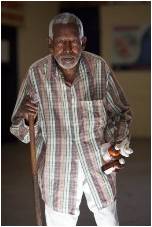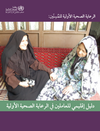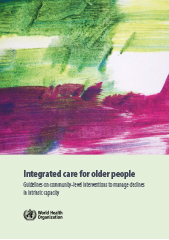 The health of elderly programme supports the move towards building "societies for all ages”, within the framework of prevailing positive cultural norms and provides technical support to develop national strategies and plans of action on active, healthy ageing and old age care, based on the revised regional strategy (2006–2015).
The health of elderly programme supports the move towards building "societies for all ages”, within the framework of prevailing positive cultural norms and provides technical support to develop national strategies and plans of action on active, healthy ageing and old age care, based on the revised regional strategy (2006–2015).
Member States in the Region are encouraged to adopt and adapt the WHO initiatives on age-friendly primary health care centres and age-friendly cities/communities and to establish regional, subregional and national networks of age-friendly cities in coordination with other existing WHO programmes and projects, such as the healthy city and healthy village programmes.
The programme also provides support to Member States in:
- developing national age-friendly legislation that enables older persons to be active agents and beneficiaries of development, and prevents age discrimination, abuse, neglect and violence against older persons
- encouraging the establishment of sustainable partnerships among national authorities (in particular ministries of health and social affairs), academic institutions and nongovernmental organizations concerned with active, healthy ageing and old age care
- establishing active and sustainable partnerships with other international and regional organizations, concerned with active, healthy ageing and old age care.






